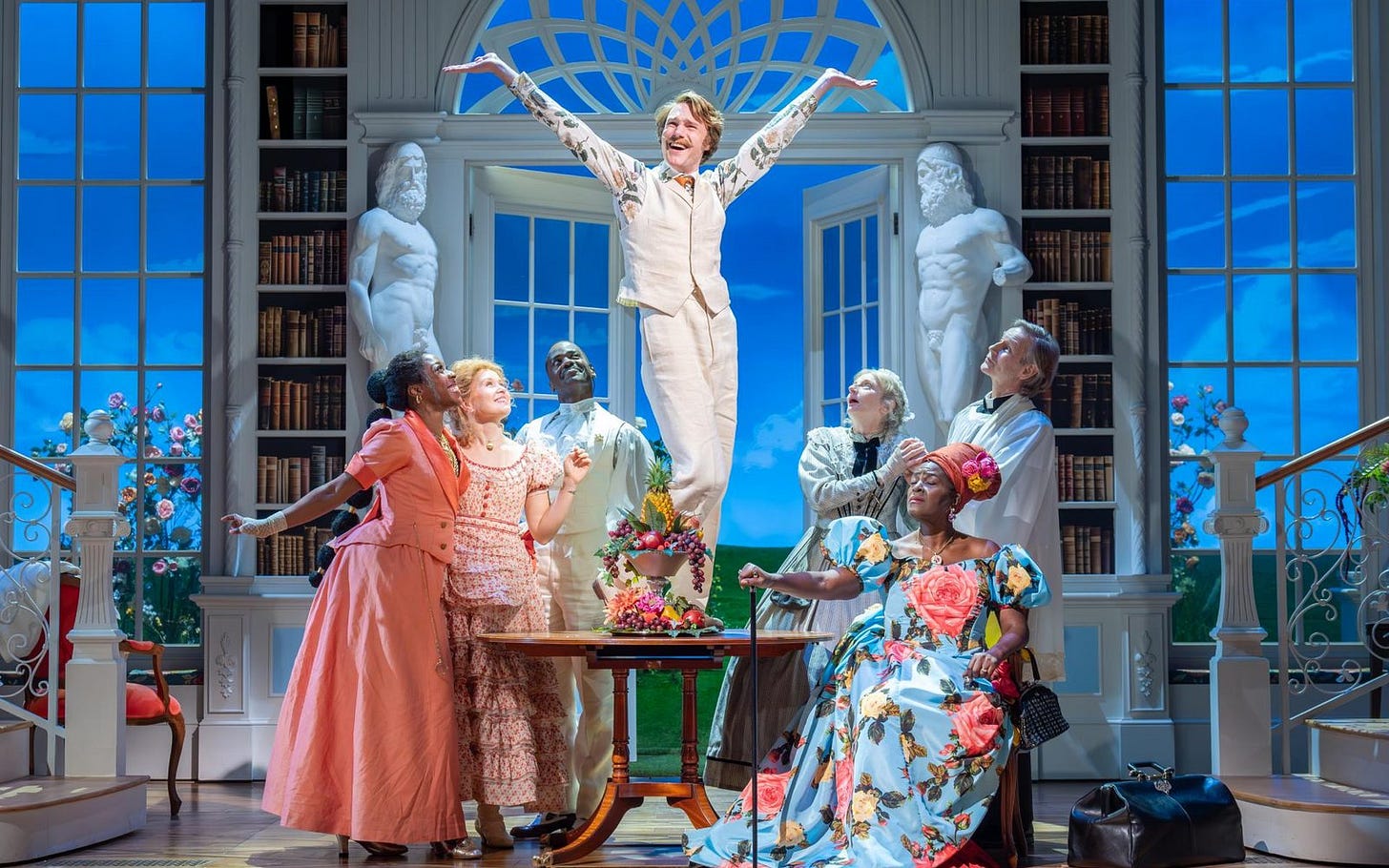The Importance of Being Earnest: Wilde's classic has aged beautifully
Max Webster's version is exactly as Oscar Wilde would have wished it to be.
Max Webster’s revival of The Importance of Being Earnest at the National Theatre is riotous. Never have I sat through a production where the audience laughed so much.
In part, of course, that is thanks to the play itself. Not only is Oscar Wilde’s writing ingenious and hysterically funny, Earnest is also the place where Wilde truly embraces his love for - and understanding of - the English language. But, dialogue aside, the cast and direction in this production breathe life into the performance, more than doing justice to Wilde's writing.
Notoriously, when it was first performed on 14 February 1895 at the St James’s Theatre in London, Bernard Shaw wrote in the Saturday Review that The Importance of Being Earnest was "extremely funny" but "heartless", adding that one goes to the theatre ‘'to be moved to laughter, not to be tickled or bustled into it".
Perhaps the play needed to grow into itself. For a modern audience, Webster does not shy away from the undertones of Wilde’s script. The play, often viewed as a commentary on sexuality (and a masked exploration of Wilde’s own sexuality), is witty and sharp, filled with tongue-in-cheek nods to gender stereotypes. Webster makes the desires of his characters known, staying true to Wilde’s intentions, but he has perfected the balance between that and vivacious, musically scripted humour, so at no point does the audience feel as though they are being lectured.
The Importance of Being Earnest is often performed as a piece of amateur theatre, as it demands so little from its set. To be a pleasurable watch, all that is required is a strong understanding of the script, and a director who appreciates the art of performing between the lines. In these terms, credit should be given to Joyce Henderson, the production's physical comedy advisor. Every actor was well versed in the power of their movement, most notably Ronkẹ Adékọluẹ́jọ́, whose performance as Gwendolen Fairfax is outstanding. Her speech, and that of others, is punctuated by the most terrific noises that I would not dare to attempt to spell, her facial expressions had the audience in fits of laughter, and her command over both the stage and herself was superb.
Casting director Chloe Blake deserves credit too: the cast was perfectly selected, Sharon D Clarke’s portrayal of Lady Bracknell was filled with foreboding and gravitas, and the resignation of a woman who has lived a life in which she is far more intelligent than practically every male she has encountered.
The show was embellished, but not carried, by the dynamic of Jack – played by Hugh Skinner, and Algernon – played by the much-anticipated Ncuti Gatwa. Their chemistry on set was evident, and the comedic understanding of one another’s style was enjoyable to watch. Gatwa must have been utterly exhausted after each performance, as he runs and leaps and dances everywhere he goes. Skinner must have been exhausted too, since he runs after Gatwa in an endless cycle of exasperation. No matter how exasperated he may be, Skinner held control over the love that Jack feels for Algenon – in both the brotherly affection and the innuendo of the script.
Eliza Scanlen took on the role of Cecily Cardew, a character who can be rather jarring to watch. Yet somehow, Scanlen made you fall in love with Cecily’s obstinate and self-absorbed nature, and she had the audience in peals of laughter.
While a lucid understanding of the script alone would have made this performance enjoyable, Rae Smith’s set is nonetheless truly breathtaking: brightly coloured and glamorous, but never distracting from the scenes. And Smith’s costumes encapsulated the extravagance and decadence of Wilde himself.
In today’s era of theatre and entertainment, Max Webster’s production is a welcome piece of fun and revelry, a perfect balance between astute observation and not taking itself too seriously. His execution and understanding of the script are without fault.
When watching or reading The Importance of Being Earnest, one can imagine that, given its underlying themes, it would have been performed with a great deal more caution when first brought to the stage. No wonder critics such as Bernard Shaw felt that it lacked… something. Yet the script has aged beautifully. If Wilde himself saw Webster’s version, I do not doubt that he would feel it is exactly as he had wished it to be.


